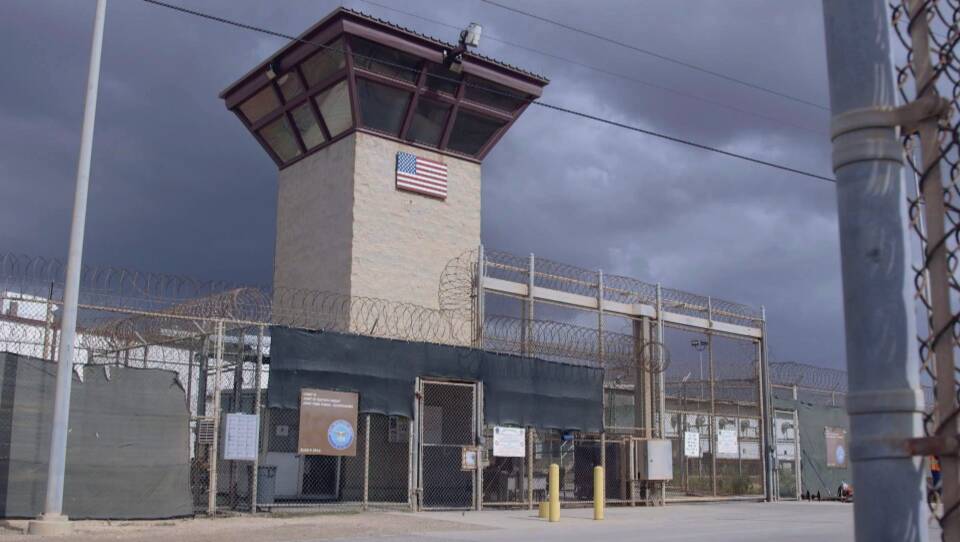For years, the military prison at Guantanamo Bay, Cuba, has held what the government alleges are terrorists bent on destroying America and its allies. But in the waning days of the Obama administration, the president's staff pushed to release more prisoners, many of whom had been held without charges indefinitely. What happens when a suspected terrorist is finally released? That's the subject of Frontline's latest documentary, "Out Of GITMO." We sat down with WGBH News' own Arun Rath to hear more about his reporting.
Tell us a little bit about your first impressions of Guantanamo Bay?
The first impression is that it’s beautiful. It’s the natural beauty. It’s’ something you do not expect, but it’s a bay in the Caribbean. There are beaches and crystal blue water. There’s unspoiled nature and wildlife that you see all over the place. It’s hard at times not to be taken with that even though you know there is a military prison that’s conducting war crime trials right there.
How many times have you been there?
It’s either nine or 10 times. I started going there in 2012. I went to cover the arraignment of Khalid Sheikh Mohammed and his co-defendants for the 9/11 attacks. I’ve been going back for those trial hearings since then.
How did you meet Mansoor al Dayfi?
It was through his lawyer. We spent some weeks trying to track down detainees who had been released recently that we could talk to. That can be difficult because some live under restrictions that prevent them from talking to the press And a lot of them want to keep a low profile when they’re out. Mansoor was one of the ones willing to speak. He took some convincing, but he was ready to tell his story.
What did you find compelling about his story?
The most compelling thing overall, which drives a lot of the drama in the film, is understanding who this guy really is. The government’s initial assessment was that he was a high-level terrorist who knew about the planning of the 9/11 attacks. The final assessment was that he might not even have been a member of al Qaeda and was probably a low-level fighter. Mansoor himself claims to be totally innocent, that he was picked up for being in the wrong place at the wrong time.
Did anything about this story surprise you?
Getting pulled over by the Serbian special police on the first day I got to Serbia just moments after taking my leave of Mansoor for the first time. I knew he was being watched but didn’t expect we were going to be watched so closely. Serbian officials insisted that Mansoor was being treated fairly and adjusting well, but, towards the end, they stopped talking to us.
When you were in Serbia, did you fear for your safety?
I was a little bit nervous but not really fearful for my physical safety. I felt kind of protected by the fact that I was a US citizen and a journalist with a public profile. My biggest fear was that they would take our footage or prevent Mansoor from talking to us.
What do you think the future holds for GITMO and the detainees that remain there?
I think it’s status quo while President Trump remains in office. For me, the big question is will he try to add to the population there because it’s not just a question of adding more beds. There is a whole range of complicated issues that will come up if we want to send new detainees to be held there. For instance, we know it’s considered legal to detain someone in Al Qaeda, but it’s not clear if the same authority would extend to detaining an ISIS fighter.





